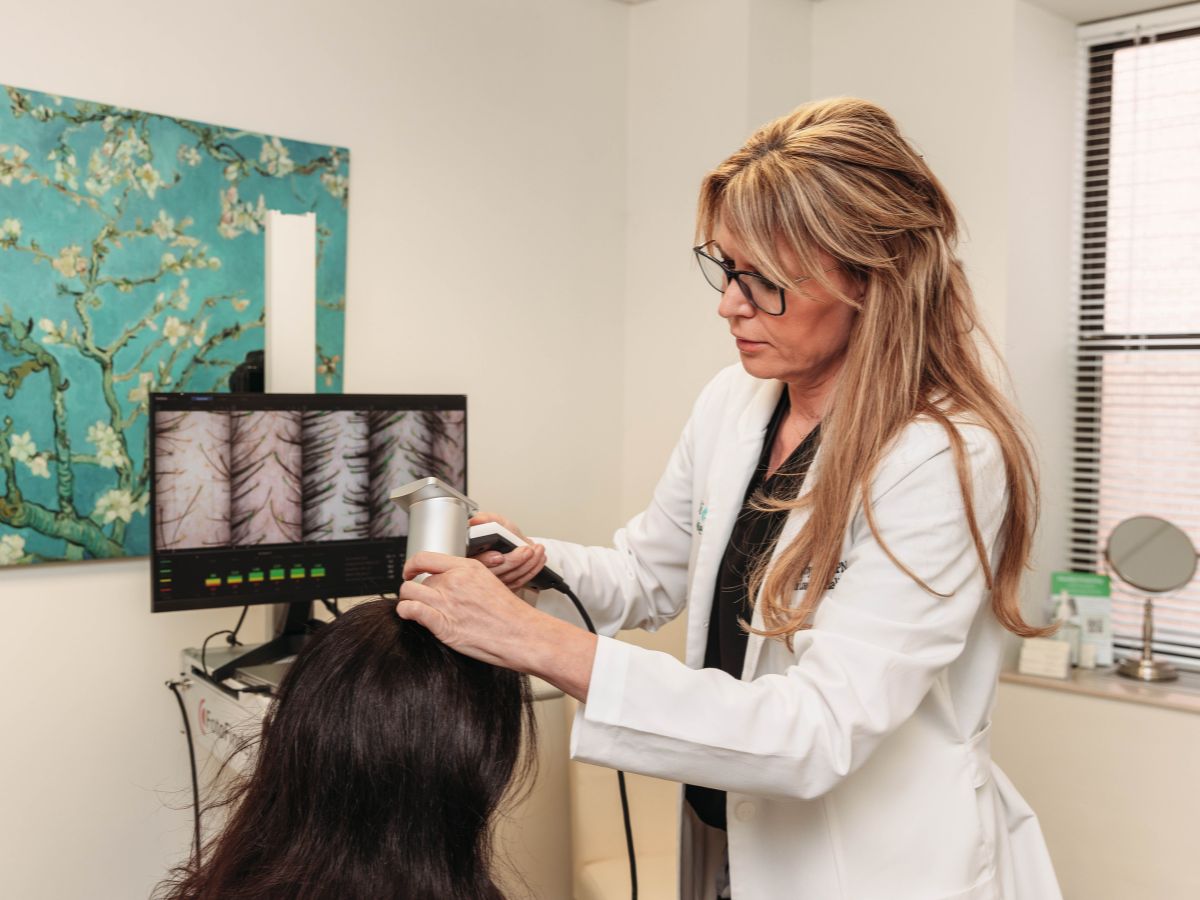
When we first opened Medi Tresse and started seeing women experiencing hair loss, virtually all the patients who came in for evaluation were experiencing symptoms of Androgenic Alopecia, which is the most common type of hair loss in women. The hair loss occurred slowly over many years, sometimes decades, and many of them had family histories consistent with the genetic basis for Androgenic Alopecia. Research on the treatment for this type of hair loss is extensive and fortunately the treatment is usually very successful. These treatments include minoxidil (82M), LLLT (low level laser therapy) and PRP (platelet rich plasma), as well as supplements like Nutrafol and Viviscal. Sometimes, a hair transplant is an option as well. Recently we are seeing increasing numbers of women with Scarring Alopecia, which is an inflammatory cause of hair loss, and a much more challenging problem to treat.
At a recent international conference on hair loss, our team heard the world’s experts debate the potential causes, but at this point we really don’t understand why this is happening more frequently. There is some evidence that certain harsh hair care practices may contribute to some forms of Scarring Alopecia, particularly in African American women that use chemical relaxers from a very young age. This type of hair loss is much more common in women than men, with some studies reporting as high as a 4:1 ratio of women to men. There is some evidence to suggest an autoimmune cause, and there may be a genetic component as well, but more research definitely needs to be done.
Scarring Alopecia results in permanent damage of the hair follicle if treatment isn’t started immediately. Unfortunately, in the early stages, it often looks very similar to Androgenic Alopecia and treatment may be delayed. However, the major difference is the rate of hair loss, which is much faster with Scarring Alopecia.
There are several types of Scarring Alopecia: Central Centrifugal Cicatricial Alopecia (CCCA), Lichen PlanoPilaris (LPP), and Frontal Fibrosing Alopecia (FFA). If a woman presents with a more rapid rate of hair loss, as well as evidence of inflammation around the base of the hair follicle on examination, then we become concerned with the possibility of Scarring Alopecia. The pattern of hair loss may be patchy, or as in FFA present as a band of loss along the frontal hairline with loss of eyebrows as well. A biopsy is essential to confirm the diagnosis.
Regardless of which type of Scarring Alopecia exists, the initial treatment is usually steroids, topical or injected. Strong consideration should be given to oral medication, which may include doxycycline, hydroxychloroquine, and dutasteride. Newer treatments like laser therapy and PRP have not been studied at length, and should be considered only after standard treatments have failed. We have had some success utilizing PRP in CCCA, especially in women with some underlying Androgenic Alopecia as well.
Patients with scarring alopecia need to be followed carefully and treated aggressively. At Medi Tresse we are fully capable to treat all types of hair loss in women, and early diagnosis and treatment is essential, especially in Scarring Alopecia in order to prevent permanent loss.
Medi Tresse has four convenient locations in Boston and Worcester, MA; Westchester and New York City, NY. Contact our team today to see how we can treat your scarring alopecia.


